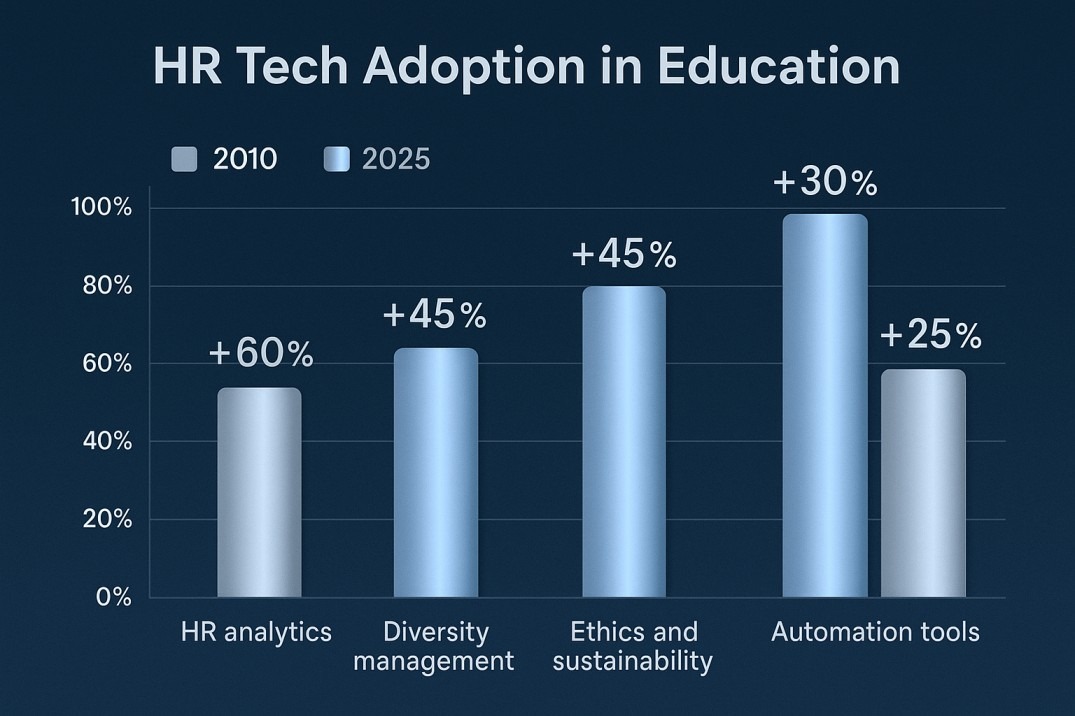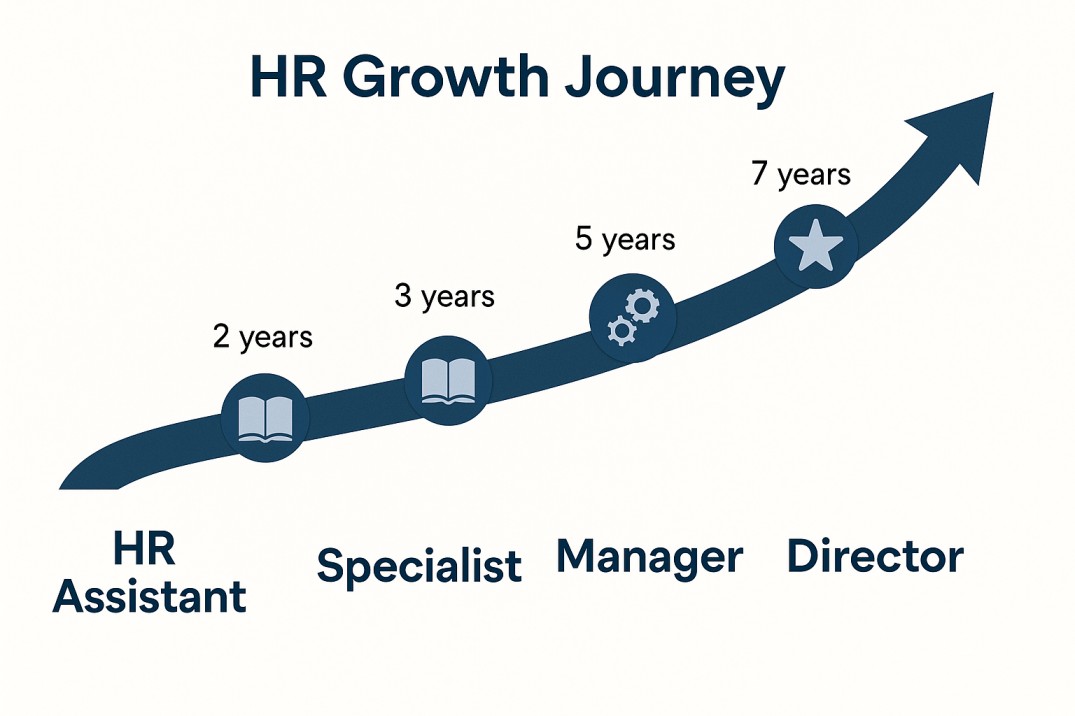The question what degree do you need for human resources carries more significance today than ever before. As workplaces become data-driven, diversity-oriented, and technology-enhanced, the human resources (HR) profession is transforming from administrative paperwork into strategic leadership. Understanding the right educational foundation for this evolving field can determine not only how far you advance, but how effectively you shape the employee experience of the future.
The question what degree do you need for human resources depends on how far you want to advance in the field. A bachelor’s degree in HR management, business, or psychology builds essential knowledge for entry-level roles, while a master’s or MBA develops strategic and analytical expertise for leadership. Degrees in communication or data analytics also prepare professionals for specialized HR functions. The best path blends education, certifications, and experience to shape adaptable, emotionally intelligent leaders in modern HR.
The Academic Foundation Behind Modern HR
To start, what degree do you need for human resources depends largely on your career goals. Entry-level HR assistants, payroll coordinators, or recruiters often begin with a bachelor’s degree in human resources management, business administration, or psychology. These degrees teach the building blocks of HR — from employment law and compensation systems to interpersonal communication and organizational behavior.
However, as HR evolves beyond administrative support, employers increasingly seek candidates with deeper expertise. Degrees emphasizing analytics, diversity management, and employment relations have become central to shaping credible HR professionals capable of influencing company culture and strategic growth.
The Bachelor’s Degree: Your Entry Ticket into HR
When discussing what degree do you need for human resources, the bachelor’s remains the primary pathway. Programs in Human Resource Management, Business Administration, or Industrial-Organizational Psychology provide both theoretical and applied knowledge.
These programs cover essential subjects like:
- Labor relations and collective bargaining
- Employee benefits and compensation management
- Organizational development and workplace culture
- HR data analytics and workforce planning
Graduates with this foundation can confidently pursue HR generalist or recruiting roles, building the practical skills that will anchor their long-term careers. Employers view the bachelor’s as proof that you understand how businesses function, how employees behave, and how laws protect both.
Comparing average starting salaries:
- HR Assistant (Bachelor’s): $53,000
- HR Specialist (Master’s): $72,000
- HR Manager (MBA): $95,000
When the Master’s Degree Makes the Difference
For those aspiring to HR leadership, the question what degree do you need for human resources evolves into what degree propels you forward. A Master of Human Resource Management (MHRM) or Master of Business Administration (MBA) with an HR concentration provides deeper insights into analytics, strategy, and leadership psychology.
In today’s data-oriented organizations, HR managers interpret complex trends—retention analytics, performance data, DEI metrics—and translate them into policy. A master’s-level education strengthens these analytical muscles while expanding decision-making authority.
The MBA, for example, integrates finance, marketing, and operations—allowing HR professionals to speak the language of executives. Conversely, the MHRM focuses entirely on talent strategy and organizational development. Both open the doors to senior titles such as HR Director or VP of People Operations.
The Role of Psychology and Communication Degrees

Interestingly, what degree do you need for human resources isn’t limited strictly to business programs. Many successful HR leaders come from psychology, sociology, or communication backgrounds. These disciplines offer a profound understanding of human behavior—something central to managing talent and fostering culture.
Psychology graduates excel in employee assessments, engagement programs, and mental well-being initiatives. Communication majors master mediation, internal branding, and public relations—all vital when shaping an organization’s tone. Employers value these degrees for their focus on empathy and soft skills, balancing the data-heavy side of HR with emotional intelligence.
Certifications That Complement Degrees
While discussing what degree do you need for human resources, it’s vital to acknowledge that credentials amplify academic learning. HR certifications such as SHRM-CP, SHRM-SCP, and HRCI’s PHR or SPHR validate expertise and dedication to ongoing education.
These certifications show employers that you stay current with evolving employment laws, compliance regulations, and leadership strategies. They also serve as equalizers—allowing professionals with diverse educational backgrounds to demonstrate mastery of HR standards globally recognized across industries.
Specialized Degrees for Emerging HR Fields
As technology reshapes HR through automation, AI, and predictive analytics, new educational routes have appeared. Some universities now offer degrees in People Analytics, HR Technology, or Organizational Leadership. When examining what degree do you need for human resources in the digital era, data literacy becomes indispensable.
HR professionals now use predictive models to anticipate turnover, software to automate recruitment, and dashboards to measure inclusion progress. A degree blending business insight with data science provides a strategic advantage—positioning HR not as an administrative cost center, but as a growth engine.
In addition, sustainability and ethics courses are becoming part of modern HR programs. These teach how to build cultures aligned with corporate social responsibility and fair labor practices, crucial for global organizations under public scrutiny.

Building a Career Path Beyond the Degree
Even though education shapes direction, experience solidifies reputation. Graduates who ask what degree do you need for human resources often discover that degrees open doors, but practical exposure keeps them open.
Internships, mentorships, and cross-functional projects provide context beyond textbooks—how policies affect morale, how benefits shape loyalty, and how communication prevents conflict. Many HR leaders started in entry-level recruiting or payroll before rising to strategic leadership through consistent learning.
Over time, the blend of theory and practice crafts HR professionals who can read both balance sheets and body language. That dual fluency is what transforms an HR graduate into a trusted organizational advisor.

Final Thoughts
Ultimately, what degree do you need for human resources doesn’t have one single answer—it has a layered one. At the foundational level, a bachelor’s degree in HR or business is essential. For advancement, a master’s or MBA enriches strategic and analytical thinking. For specialization, psychology, data science, or leadership programs strengthen modern relevance.
The HR landscape is evolving faster than traditional hierarchies can adapt. Future professionals who combine formal education with technological agility and emotional intelligence will shape workplaces where people thrive as much as profits grow.
The right degree is therefore not just about qualification—it’s about preparation for influence, empathy, and transformation. In the end, what degree do you need for human resources is really about what kind of leader you want to become.
Andrea Balint is a writer and researcher focused on human behavior, workplace psychology, and personal growth. Through her work at CareersMomentum, she explores how mindset, leadership, and emotional intelligence shape modern careers. With a background in communication and HR development, she transforms complex ideas into practical insights that help readers build clarity, confidence, and professional purpose.
